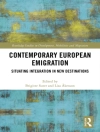`A densely packed book with interesting and valuable research gleaned from a wide variety of therapy approaches, Narrative and Psychotherapy furnishes the reader with a cogent historical appraisal of the way psychotherapy, culture and storytelling fit together…. A good reference book for counsellors and students…. The authors′ students, and clients, must be very happy that he has the interest and the capacity to tune in to others in such a fresh manner′ – Counselling, The Journal of the British Association for Counselling
The core of psychotherapy can be seen as a process in which the client comes to tell, and then re-author, an individual life-story or personal narrative. The author of this book argues that all therapies are, therefore, narrative therapies, and that the counselling experience can be understood in terms of telling and retelling stories. If the story is not heard, then the therapist and the client are deprived of the most effective and mutually involving mode of discourse open to them.
Taking a narrative approach also requires thinking about the nature of truth, the concept of the person, the relationship between therapist and client, and the knowledge base of psychotherapy. John Mc Leod examines the role and significance of stories in psychotherapy from within a broad-based cultural and theoretical framework.
قائمة المحتويات
Psychotherapy, Culture and Storytelling
How They Fit Together
Narrative Knowing
The Nature and Function of Storytelling in Psychotherapy
Narrative in Therapy
Psychodynamic Approaches
Constructivist Narrative Therapies
Narrative Therapy from a Social Constructionist Perspective
The Process of Narrative Therapy
Strategies for the Retrieval of Meaning
Postmodern Narrative Therapy
A Case Example
Reinventing Therapy
عن المؤلف
John Mc Leod has held appointments in universities in the UK, New Zealand and Italy, and is currently Professor of Counselling at the Institute for Integrative Counselling and Psychotherapy, Dublin, and Professor of Psychology, University of Oslo. He is committed to promoting the relevance of research as a means of informing therapy practice and improving the quality of services that are available to clients, and has received an award from the British Association for Counselling and Psychotherapy for his exceptional contribution to research. His writing has influenced a generation of trainees in the field of counselling, counselling psychology and psychotherapy, and his books are widely adopted on training programmes across the world.












